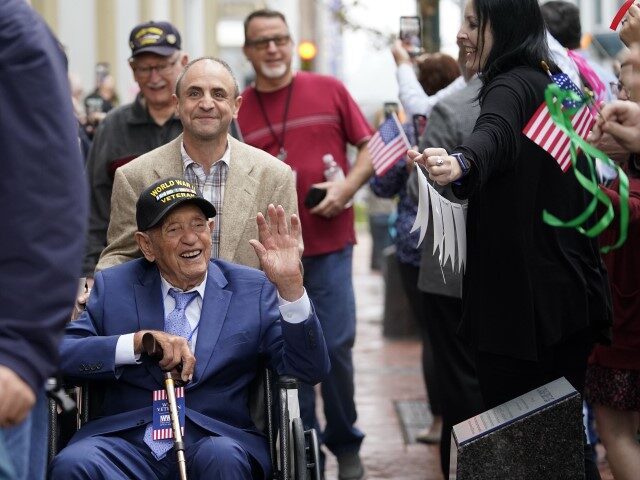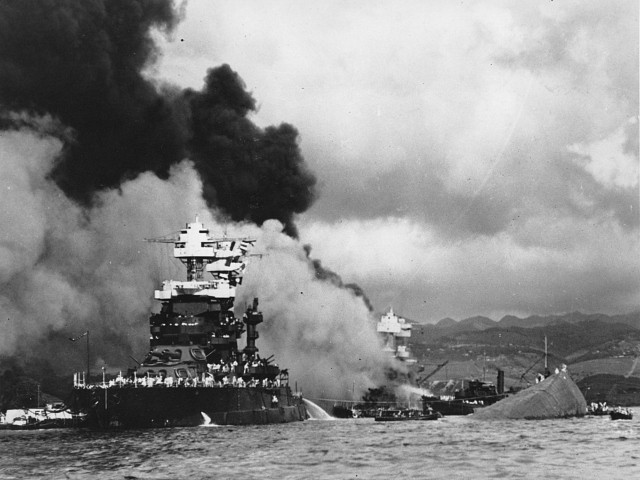The oldest living survivor of the attack on Pearl Harbor celebrated his upcoming 105th birthday on Wednesday surrounded by loved ones and fellow veterans.
The event at the National World War II Museum in New Orleans marked Joseph Eskenazi’s birthday, which is actually on January 30, the Associated Press (AP) reported.
“I’m glad to be alive at this age, 105 years old,” he said during the celebration.
The Redondo Beach, California, resident was joined by six other World War II veterans who are in their 90s. The group, which represented the Army, Navy, and Marines, made the trip thanks to actor Gary Sinise’s foundation’s Soaring Valor Program that plans World War II veterans’ visits to the museum.
“A lot of veterans in my family that inspire me to do a little bit more every day to try to support them,” Sinise noted during a recent interview:
Video footage shows Eskenazi being escorted into the museum as a big crowd clapped and waved American flags.
“It’s really quite an honor to be with them, because they really served their country very well. You heard their stories, and I was part of it,” Eskenazi told reporters of his fellow veterans.
The AP report recounted a bit of Eskenazi’s story:
Eskenazi was a private first class in the Army when the attack occurred. His memories include being awakened when a bomb fell — but didn’t explode — near where he was sleeping at Schofield Barracks, reverberating explosions as the battleship USS Arizona was sunk by Japanese bombs, and machine gun fire from enemy planes kicking up dust around him after he volunteered to drive a bulldozer across a field so it could be used to clear runways.
Eskenazi said he had no idea why but he raised his hand when they were asked who wanted to volunteer, stating, “Nobody else raised their hand because they knew that it meant death. … I did it unconsciously.”
The Japanese attacked Pearl Harbor on December 7, 1941. More than 2,400 were killed that day, most of them military personnel, and more than 1,000 people were wounded, according to PearlHarbor.org.
“The day after the assault, President Franklin D. Roosevelt asked Congress to declare war on Japan,” History.com notes.


COMMENTS
Please let us know if you're having issues with commenting.